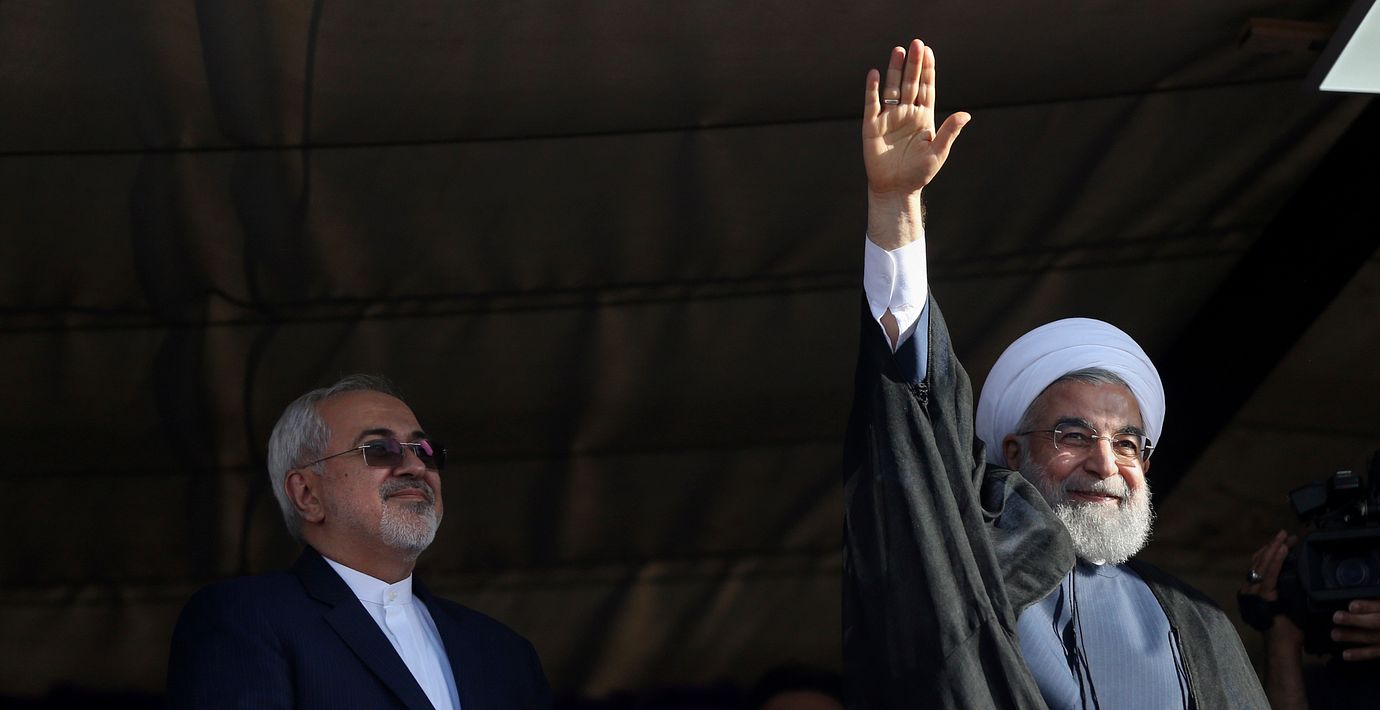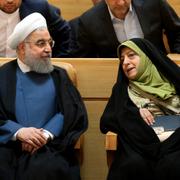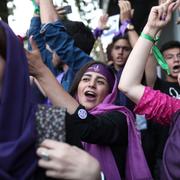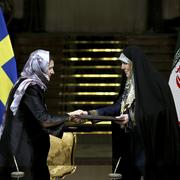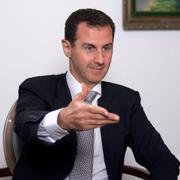Wikipedia (en)
Iran (/ɪˈrɑːn/ , also /ɪˈræn/; Persian: ایران Irān [ʔiːˈɾɒːn] ), also known as Persia (/ˈpɜːrʒə/), officially the Islamic Republic of Iran, is a sovereign state in Western Asia. It is bordered to the northwest by Armenia, the de facto Republic of Artsakh and Azerbaijan; to the north by the Caspian Sea; to the northeast by Turkmenistan; to the east by Afghanistan and Pakistan; to the south by the Persian Gulf and the Gulf of Oman; and to the west by Turkey and Iraq. Comprising a land area of 1,648,195 km2 (636,372 sq mi), it is the second-largest country in the Middle East and the 18th-largest in the world. With 82.8 million inhabitants, Iran is the world's 17th-most-populous country. It is the only country with both a Caspian Sea and an Indian Ocean coastline. The country's central location in Eurasia and Western Asia, and its proximity to the Strait of Hormuz, make it of great geostrategic importance. Iran has diverse landscapes and geographical conditions. Tehran is the country's capital and largest city, as well as its leading economic and cultural center.
Iran is home to one of the world's oldest civilizations, beginning with the formation of the Elamite kingdoms in the 4th millennium BC. The area was first unified and dominated by the Iranian Medes in the 7th century BC. Iran reached its greatest extent during the Achaemenid Empire (Persian Empire) founded by Cyrus the Great in 6th century BC, the largest empire the world had yet seen, stretching from Eastern Europe to the Indus Valley. Persia fell to Alexander the Great in 4th century BC, but reemerged shortly after as the Parthian Empire. Under the Sassanians, Persia became a leading world power for the next four centuries.
In 7th century AD, Arabs conquered Persia and largely displaced the indigenous faiths of Zoroastrianism and Manichaeism with the new religion of Islam. Iranians became major contributors to the Islamic Golden Age that followed, producing many influential scientists, scholars, artists and thinkers. After two centuries, a period of various Iranian dynasties began, although these dynasties were later conquered by Turks and then the Mongols. An Iranian national identity was always reasserted however, developing a distinct cultural entity. The rise of the Safavids in 15th century led to the establishment of Twelver Shia Islam as the official religion, marking a turning point in Muslim history. In the 18th century, Iran arguably possessed briefly the most powerful military at the time under Nader Shah. Conflicts with the Russian Empire in 19th century led to significant territorial losses. Popular unrest culminated in the Persian Constitutional Revolution, which established a constitutional monarchy and the country's first legislative body, the Majles. Following a coup d'état instigated by the UK and the US in 1953, Iran gradually became closely aligned with the West and grew increasingly autocratic. Growing dissent against foreign influence and political repression led to the 1979 Revolution and the establishment of an Islamic republic, a political system which combines elements of a parliamentary democracy with a theocracy governed by Islamic jurists under the concept of a "Supreme Leadership".
A multicultural country comprising numerous ethnic and linguistic groups, most inhabitants of Iran are Shia Muslims and Persian is the official language. The largest ethnic groups in Iran are the Persians, Azeris, Kurds and Lurs.
Iran is a founding member of the UN, ECO, NAM, OIC, and OPEC. Iran is a major regional and middle power, and its large reserves of fossil fuels – which include the largest natural gas supply in the world and the fourth-largest proven oil reserves – exert considerable influence in international energy security and the world economy. Iran's rich cultural legacy is reflected in part by its 21 UNESCO World Heritage Sites, the third-largest number in Asia and 11th-largest in the world.
